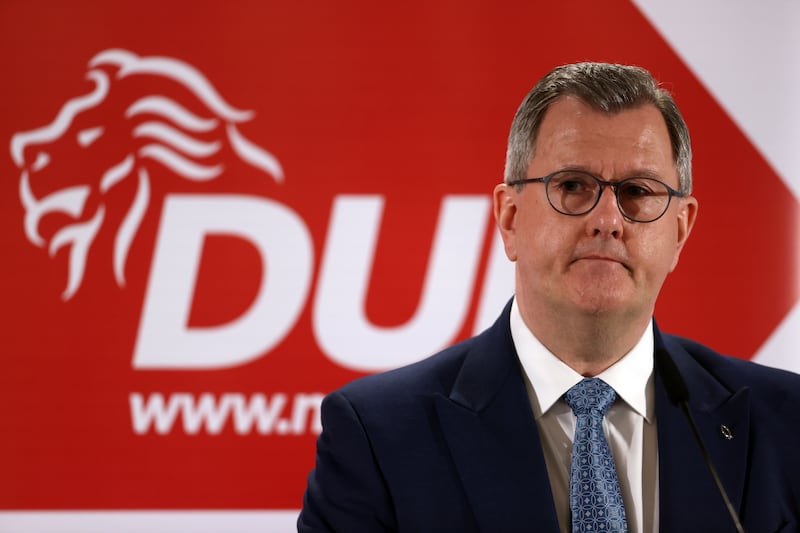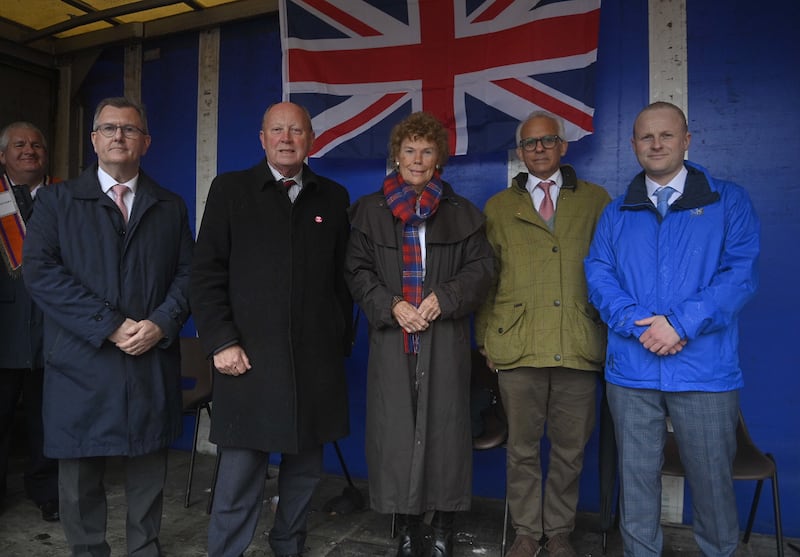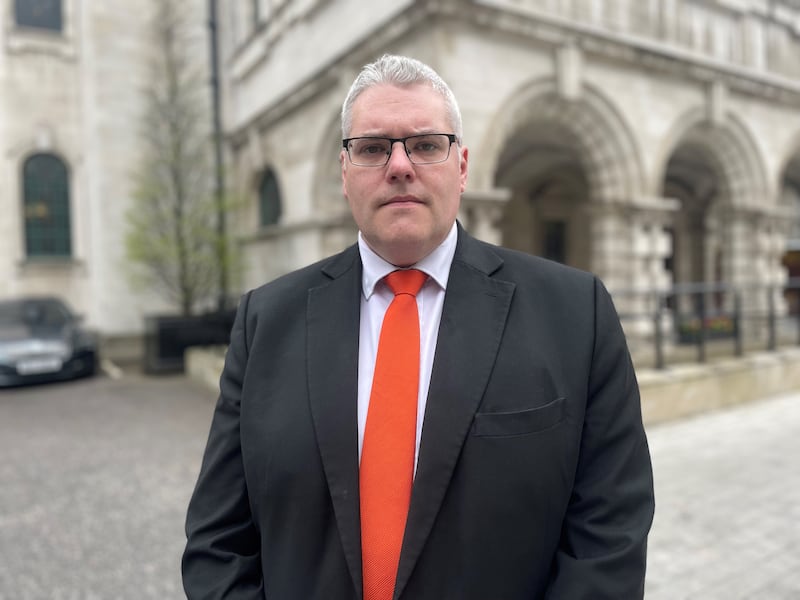“This was an absolute bombshell, no-one saw it coming. Jeffrey Donaldson was deemed to be at the height of his political success, having led the party back into Stormont. Now the party is in disarray and his political career would appear to be over.”
The words of Sky TV’s veteran and well-respected reporter David Blevins, in the aftermath of the news that Jeffrey Donaldson had been arrested and would be facing historical sex charges.
It is very important to stress that the former DUP leader has indicated he will strenuously contest the charges and remains innocent until proven otherwise, but the fallout from this truly shocking development is such that the DUP clearly – and justifiably – remains concerned about how it may affect the party’s fortunes in the time ahead.

Indeed, this was apparent in the decision to swiftly remove Donaldson’s image from the DUP website.
Jeffrey Donaldson has been the face of the party since becoming leader in late June 2021, having been embarrassingly thwarted by internal opponents when contesting the leadership just a month previously and losing to Edwin Poots. The reign of his Lagan Valley constituency rival proved to be farcically short, with Donaldson in position to finally claim the mantle once Poots was unceremoniously shown the door.
It was under Donaldson’s watch that Sinn Féin secured its greatest ever electoral performances at the 2022 Assembly and 2023 local government elections.

The one-time Ulster Unionist kept his party out of Stormont for almost two years whilst he railed against the protocol and Windsor Framework, at times making company with hardline anti-agreement figures including Jim Allister and Jamie Bryson. But he also succeeded in steadying the electoral ship to limit losses in a way that had seemed improbable. Most importantly, he navigated his party back to Stormont with consensual support across unionism and without experiencing an internal party split.
Concerns that the future of devolution may be jeopardised in the short term were laid to rest quickly as it became clear that there would not be a challenge to Gavin Robinson as interim leader from the faction of the party that opposed Donaldson’s decision to bring it back into government just two months ago.

Losing a party leader with the experience and communication skills of Jeffrey Donaldson will be difficult enough without the added context of the extraordinary circumstances within which his resignation occurred.
The Safeguarding the Union deal and decision to return to Stormont whilst a sea border very clearly remains intact were moves inextricably associated with Donaldson, and the anti-agreement voices raging against the DUP for the heart and soul of unionism will hardly be shy about reminding the electorate about those facts as a Westminster election comes closer into view.
Losing a party leader with the experience and communication skills of Jeffrey Donaldson will be difficult enough without the added context of the extraordinary circumstances within which his resignation occurred
On that note, it was unsurprising to see a joint letter bearing the names of Allister, Bryson, Ben Habib and Baroness Hoey last week call for the new DUP leader to reject the ‘Donaldson Deal’, a phrase we will hear a lot more of in the months ahead.
- The DUP is a party badly in need of changing the subject – Newton EmersonOpens in new window
- Jeffrey Donaldson: Shocking charges plunge DUP into disarray - The Irish News viewOpens in new window
- Grotesque, unbelievable, bizarre, unprecedented – Jeffrey Donaldson bombshell fits all these categoriesOpens in new window
The main theme being repeated in the first series of interviews conducted by DUP figures since the bombshell announcement has been to emphasise the need for ‘unionist unity’ in advance of the general election, a calculated move aimed at putting pressure on the Ulster Unionist Party and Jim Allister’s TUV to step aside and give a free run to DUP candidates in key constituencies, something that would shield the party from potential electoral damage.
Having made much of his party’s electoral pact with Reform UK, it is unlikely that Allister will seek to ease the pressure on the DUP, not least if he believes a bad result for a shell-shocked party will result in Gavin Robinson’s removal and the appointment of a new leader whose views are more in tune with his own.








